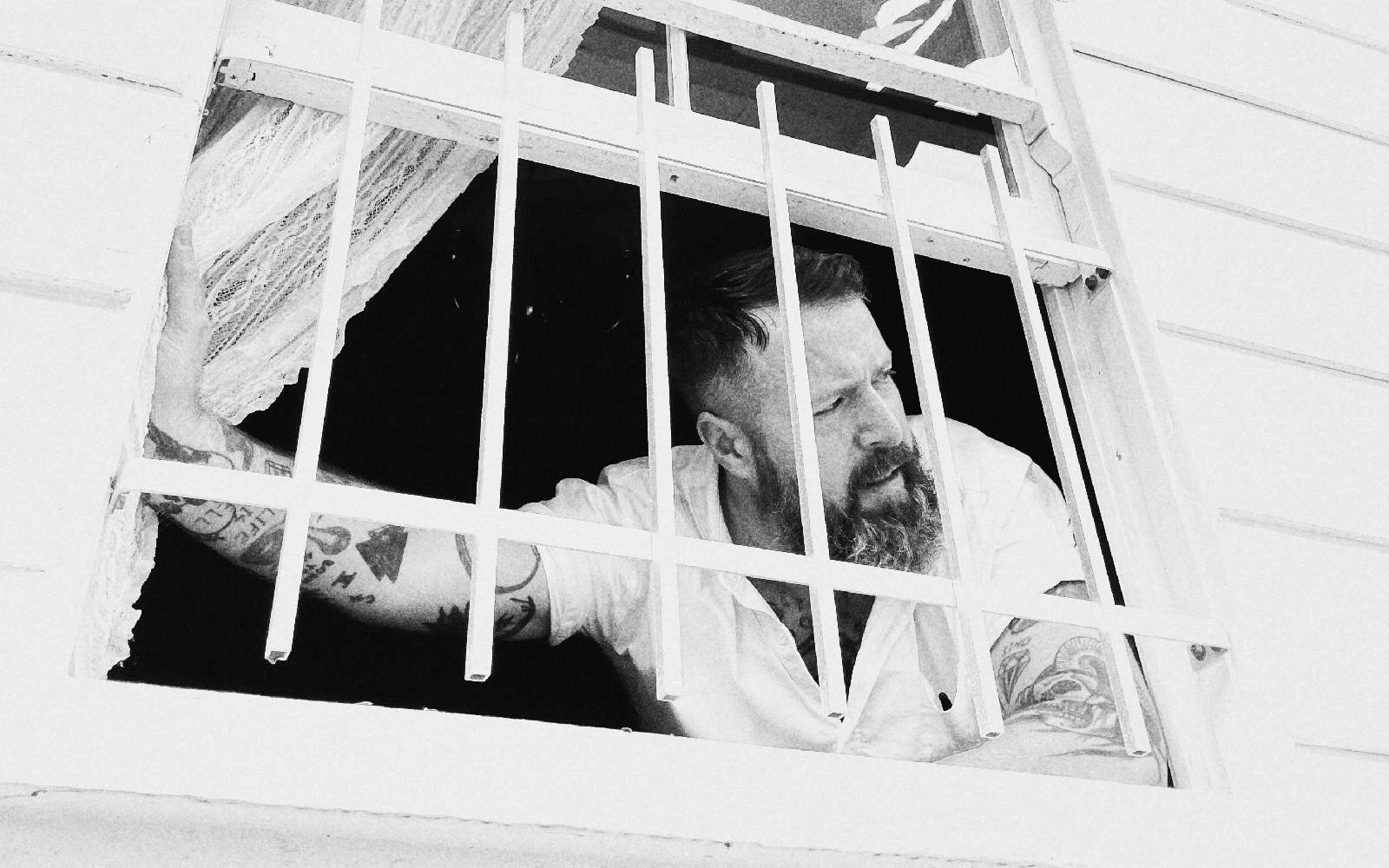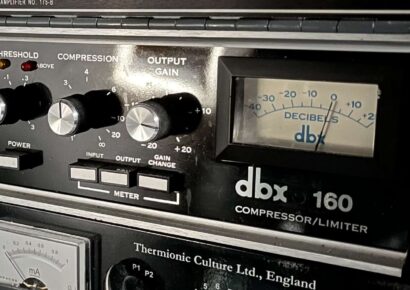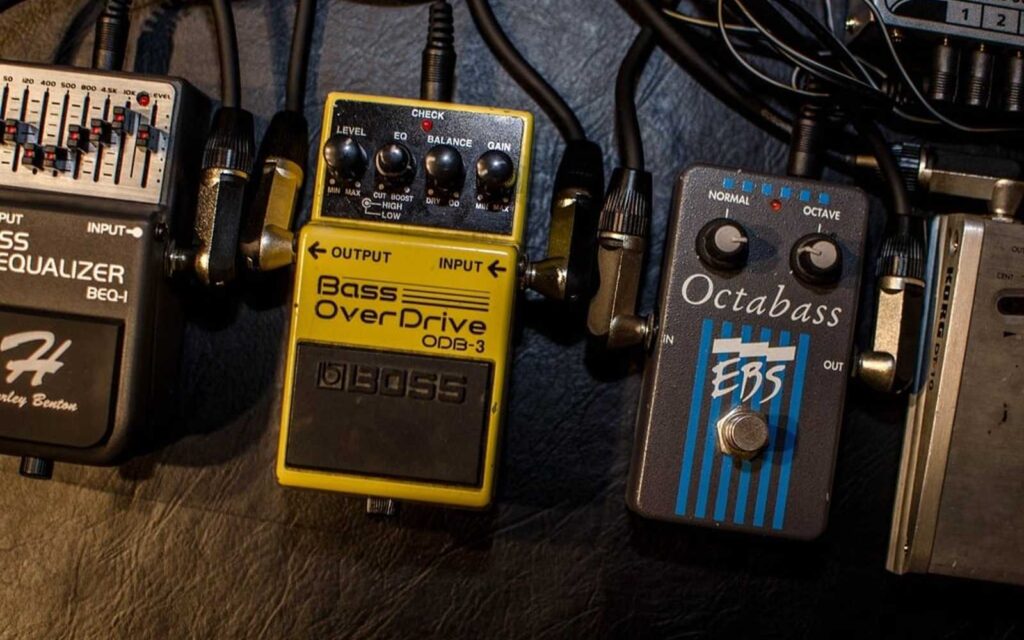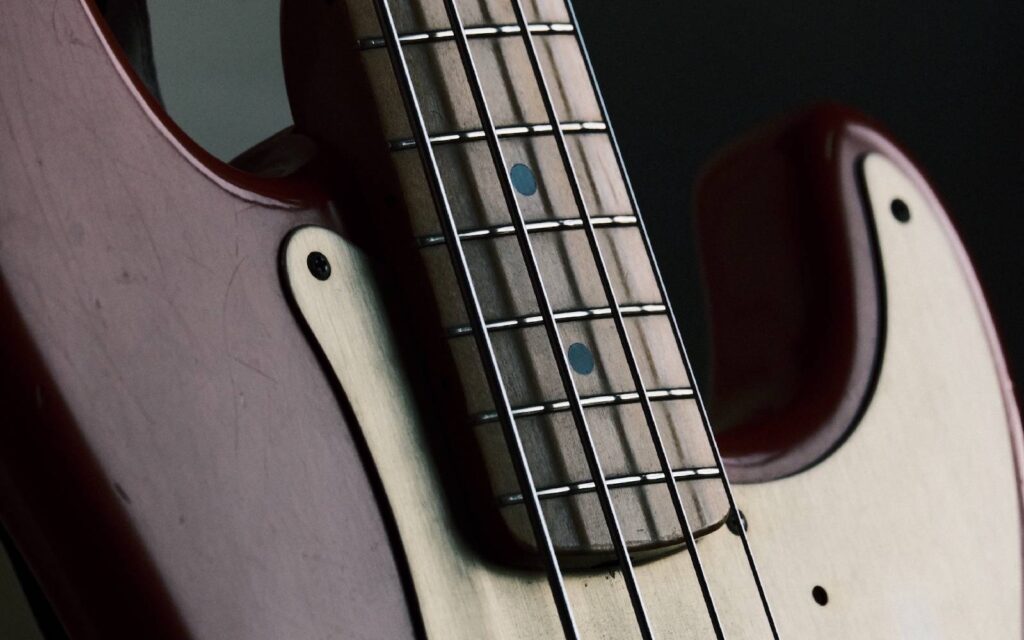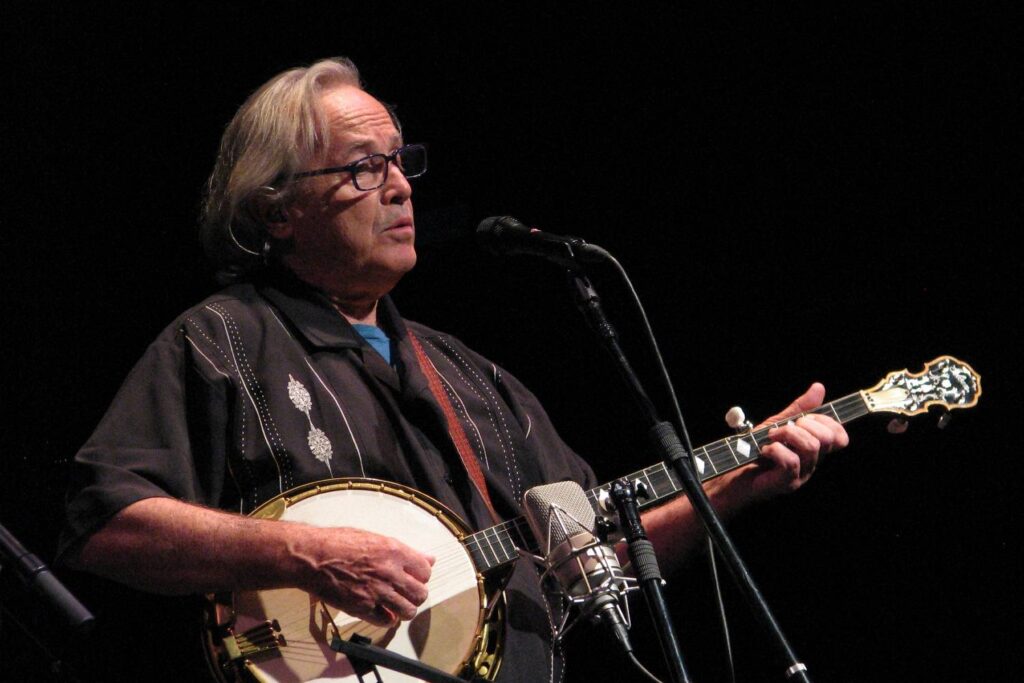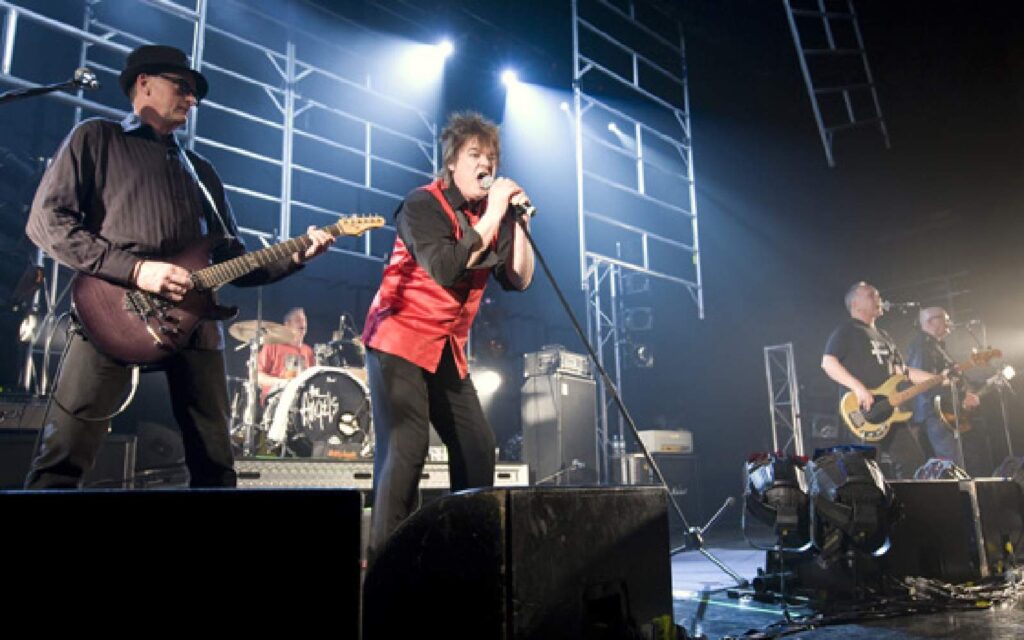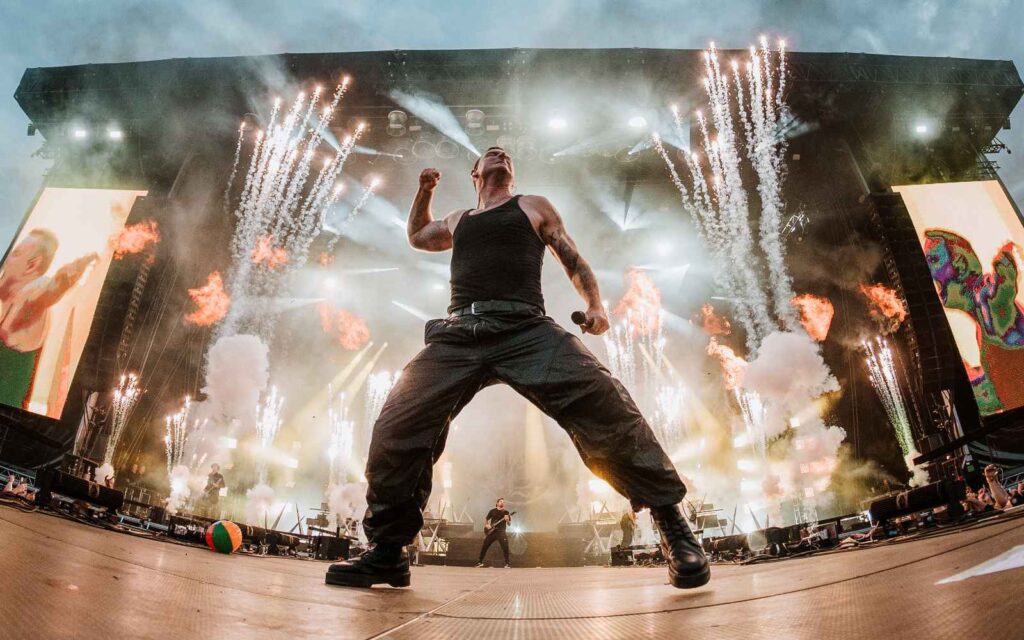Weary of anything he might become addicted to, King Dude uses a few select pieces to make his music.
King Dude is the musical moniker of TJ Cowgill, primarily a songwriter from Seattle, now living in Meanjin.
“I usually say I’m a musician which isn’t really accurate.” he begins. “I usually say I’m a country singer, I try to default to what they will most recognise. I don’t go like ‘I’m a dark folk artist’.” TJ laughs, explaining how confused people are when he begins to throw around unfamiliar terms.
“So I usually say ‘I play country music. I write my own songs.’ in that order. I try to keep it not too pretentious, because a lot of those titles too, they just feel overblown and frought with too much self importance.”
Read up on all the latest features and columns here.
TJ continues, saying musicians are much like tradespeople, and big titles can misrepresent what he does.
“I think if you tell people you do originals, they think you must have ‘made it.’” he jests, musing about what ‘making it‘ actually means. “There’s many levels to ‘making it’, just because you’re writing your own songs and that’s what you do for a living, doesn’t mean you’re Taylor Swift.”
TJ also mentors young singers at the Independent Music Academy in Windsor, the natural transition from singing to songwriting leading him to helping them with songwriting as well.
“One of the most important things I stress to [the mentees], you don’t have to be successful to have success in what you’re doing.”
Some of this mentorship involves microphone and speaker education, teaching people to understand their own voice and the mic that might both capture it best, but also using a mic that allows them to record and demo how is most conducive to their workflow.
TJ himself, though, endeavours to write songs away from any recording tech or computer screen. He’ll create a voice memo on his phone if he really needs to remember something, but he doesn’t get to recording until the song is finished, and even then it’s a simple affair.
“If [the idea] is done and ready to go, it’s easy. Record acoustic [guitar], record vocals; lately I just do both at the same time.” he explains. “Because it’s way more authentic and sounds better to me. It sounds so much richer.”
“I’ve been using the [Shure] SM7B for the vocal, and then for the acoustic I have a [Neumann] TLM102, which is my most expensive mic. I was on the fence ‘Should I buy this or not?’ and I’m really glad I did.”
“[The TLM102] is a workhorse too, I use it for electric, acoustic, vocals depending on what it is, you can get room sound with it. It’s stellar.”
Speaking further to gear, TJ explains that he doesn’t need ‘every guitar pedal’ or ‘every synthesiser’ that comes out. Using synths as a reference, he’ll look for the one piece that’ll be right for every job he needs it for, and then he’ll commit to a purchase. We discuss this further, agreeing that the limitation helps fuel creativity, whereas having everything at your fingertips can become jarring and ironically inhibitive.
“That’s why I bought a [Moog] Grandmother, it does everything I need.” he says, the Moog itself sitting on a rack behind him as we chat.
“Same thing for electric guitars, I’ve lived here for two or three years without a bass guitar and just done everything on the synth. I’ve started this new rock band and I finally went and bought a pretty cheap Gretsch bass guitar, like really cheap.”
“I don’t know if it’s frugal or cheap or utilitarian, but you don’t need more than what you need, y’know? It can screw up a recording if you have too many options.”
This utilitarian approach led TJ to his black Gretsch Electromatic, having played the guitar live extensively.
“I was obsessed with Roy Orbison and early country music, this is like 15 years ago, I gotta look the part, I need the right guitar.” TJ says with a smile.
“I really think they’re great guitars. The Bigsby is great on ‘em, they’re not top, top of the line production wise,” he explains, referring to the mid-level Electromatic series specifically. “And you can feel the difference when you’re playing an American Gretsch, but the Electromatic series is good enough for me, it works on stage everywhere. We take ‘em on tour, we didn’t have a bunch of backup guitars. We didn’t need ‘em.”
We chat for a moment about how horrible some cheaper, budget guitars have been, TJ laughing that some early guitars of his were so difficult to play it shattered his dreams of playing.
“My first guitar was like that, something from a pawn shop, I think 30 bucks, it had the highest action in the world.” he grins. “I kept working at it, trying to make barre chords, and I begged my mum to buy me an Epiphone—the Strat body with a hockey stick headstock?”
“And I was like ‘Oh, this is what electric guitar should feel like, like oh my God I can play this one!’” he says, remembering the struggle to fret on that first, cheap pawn shop guitar.
TJ pivots here, chatting about the move to Australia and deciding what to bring with him, again using it to cull his collection of equipment in his supremely utilitarian approach. A select few guitars and a Korg SV1 synth came with him, a lot of what he uses now having been purchased in Australia rather than shipping it from the USA.
“I had my Tascam 488 MK2 that I’ve had for a while, bought it for 15 bucks in the States, fixed the C Gear, they have these faulty C Gears.” he explains.
“I wanted to bring it, just use it for tape saturation and stuff, like really noisy stuff,” he explains. “Eventually my mum was coming to visit, she asked if I wanted her to bring it, so I said ‘Sure, that’d be nice.’”
“The first thing I did is plugged it in and forgot about the 220 [volts] versus 110 and just blew it up. Fried it right away.” he laughs.
All of this is to say that TJ has a slight aversion to recording digitally, while it’s supremely convenient, recallable and transparent, it can also be ‘soulless’. Mistakes can be left to be fixed later in the digital world, whereas TJ will generally try to fix things on the spot.
His albums of covers are all one take, “Not to brag!” he adds, but there’s a feel, depth, and mood to the music that comes from recording live, albeit with just a guitar and vocal.
The sparse nature of the recordings allows each element to really bloom, doing away with the need to drastically effect, process and shape the sounds, using high-pass filters on acoustic guitars as an example. Traditionally in a dense mix, the bottom end will be totally cut to make way for kick, bass, guitars and more, whereas in his recordings, there’s plenty of room for the body of an acoustic guitar beneath his vocal.
TJ has moved on from a time where he’d play with a full band, bringing them on the road and doing the songs in a way he thought was doing them justice. In an interesting turn, his audience had really grown to love the more sparse, acoustic and vocal style performances they knew him for. He’s begun to involve acoustic elements into shows with the full band, but has performed consistently solo or as a duo to great success. There’s something about his cadence, style and swagger that simply don’t need accompaniment.
You can catch this pared-back version of King Dude at Lefty’s Music Hall on Thursday, January 23rd 2025. He’s supported by Sam Haven and Piper Lodge. Tickets and info are available here.
